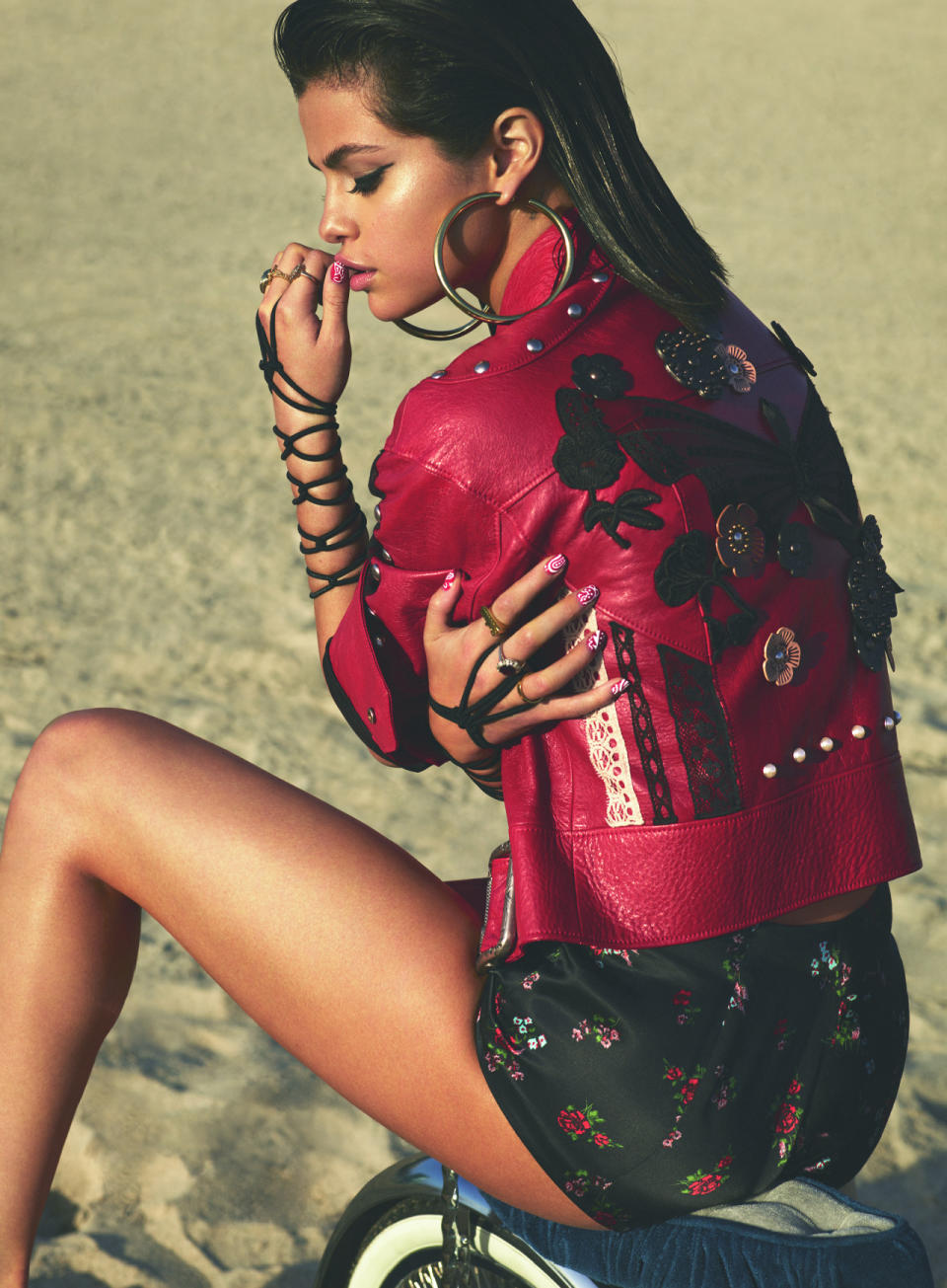Selena Gomez Gets Real About Anxiety — And How Therapy Changed Everything
Selena Gomez has become an open book. Over the past year, the singer and new Vogue cover star has grown increasingly forthcoming about her struggle with depression and anxiety. Now, that honesty is translating into a sign of real strength, turning Gomez into a compelling new voice for a generation of young women, and breaking down conversational barriers surrounding emotional health.
In the April issue of Vogue, Gomez reveals that before she cancelled the end of her Revival tour last summer, she “cried onstage more times than I can count, and I’m not a cute crier.” She added, “My self-esteem was shot. I was depressed, anxious. I started to have panic attacks right before getting onstage, or right after leaving the stage. Basically I felt I wasn’t good enough, wasn’t capable. I felt I wasn’t giving my fans anything, and they could see it—which, I think, was a complete distortion. …What I wanted to say is that life is so stressful, and I get the desire to just escape it. But I wasn’t figuring my own stuff out, so I felt I had no wisdom to share. And so maybe I thought everybody out there was thinking, This is a waste of time.”
She then checked into a treatment facility in Tennessee and gave up her cell phone to engage in 90 days of individual and group therapy with a small number of young women who felt similarly unmoored.
That sense of female camaraderie became a source of stability for Gomez, a revelation that feels particularly poignant at a time when women around the globe are coming together in mutual support. “You have no idea how incredible it felt to just be with six girls,” she says. “Real people who couldn’t give two shits about who I was, who were fighting for their lives. It was one of the hardest things I’ve done, but it was the best thing I’ve done.”

In like-minded fashion, a growing number of women in the public eye have begun to come forward about similar battles. Earlier this month, Chrissy Teigen wrote a candid essay about postpartum depression that called for lessening the stigma through discourse, following the likes of Adele and Gwyneth Paltrow; in February, Lena Dunham and Girls executive producer Jenni Konner led a talk at Manhattan’s 92nd Street Y called “Growing Up With Anxiety,” where Dunham expressed the hope that one day the world would be “teaching kids from a young age that it’s as okay to say ‘I’m anxious’ as it is to say ‘I hit my knee.’ ”

Through her own honesty, Gomez has also sought to break down the veneer of celebrity perfection, becoming a role model and forging a deeper connection with her fans in the process. With 110 million Instagram followers, she still tries to remain true to herself. “People so badly wanted me to be authentic and when that happened, finally, it was a huge release. I’m not different from what I put out there. I’ve been very vulnerable with my fans, and sometimes I say things I shouldn’t. But I have to be honest with them. I feel that’s a huge part of why I’m where I am.”
That up-close and personal relationship can be admittedly complicated—it’s one reason she unplugged from social media for months—but by breaking the mold through more open conversation, Gomez has made a powerful point: that it’s not just okay, but important to share these universal problems.
Proof that it’s not just talk? Gomez’s reveal that she now visits her therapist five days a week, and is a profound believer in Dialectical Behavior Therapy, a treatment first developed for patients with borderline personality disorder that is now more widely used to treat conditions like depression. It puts the focus on improving communication, mindfulness, and developing the right cognitive tools to deal with emotional ups and downs—a more skills-based approach to coping with stress. “DBT has completely changed my life,” she says. “I wish more people would talk about therapy.”

Of course, that’s exactly what she has stepped forward to do, pointing toward the unrealistic standards women are held to that keep them from speaking out. “We girls, we’re taught to be almost too resilient, to be strong and sexy and cool and laid-back; the girl who’s down,” she says. “We also need to feel allowed to fall apart.” Here’s to a courageous new vision of what it means to lead by example.
This story originally appeared on Vogue.
More from Vogue:
13 of the Best-Selling Red Lipsticks of All Time
25 Secret Celebrity Weddings We Still Know Little About
The Best Hourglass Bodies of All Time: From Raquel Welch to Beyoncé
The 27 Best Beach Bodies of All Time

